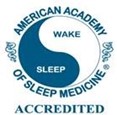Pediatric sleep apnea, also known as Pediatric Obstructive Sleep Apnea (OSA), is a condition in which there is an obstruction in the airway passage during sleep, resulting in pauses in breathing. Since children do not wake up as frequently as adults, it often goes unnoticed and can be difficult to diagnose. Sleep apnea in children may give rise to complications like headache, attention, memory and concentration issues at school, behavioral problems, poor growth, high blood pressure and even problems relating to lung or heart.
Children with medical conditions like Down’s syndrome have been found to be at a greater risk for developing sleep apnea. Other known abnormalities associated with childhood sleep apnea are central nervous system and neuromuscular abnormalities, Treacher Collins syndrome, Pierre Robin sequence and other disorders with craniofacial abnormalities.
